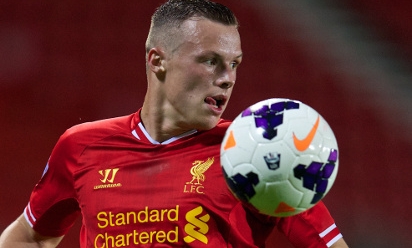Column: How we help injured boys recover
In our latest column from the club's Kirkby set-up, we hear from Andy Renshaw, the Academy's head physiotherapist, at the end of an important week for two of the Reds' youngsters.
On Monday, the U21s beat Tottenham 5-0 - but even more pleasing for those at the Academy was the return to action of Samed Yesil and Brad Smith.
It was their first minutes since January when they both picked up long-term injuries - and Renshaw explains how they were worked back to full fitness by the Academy's medical team...
My role at the Academy is to manage the physiotherapy department for all groups from U9 level up to U21.
Richie Partridge is alongside me with the U21s group and then we have Liam Kershaw, Neil Davies and Joe Lewis working with the U18s side.
So it's my job to manage that department of physios and to maintain a hands-on role with the U21s, so that we can work alongside the coaching staff with the aim of preventing injuries, and thus maximising the time the players can spend both in training and in matches.
A typical day for me goes something like this. The medical staff meet for breakfast at 8am and then we hold a medical meeting, where myself and Richie are joined by Liam, Neil and Joe and our academy doctor Andy Massey, to go through all current injured players from both teams.
Doing it this way allows all the staff to get to know the ins and outs of each individual's injury, so that if we have to assist the U18s with an injured player, or we need them to assist us, everybody is fully aware of what's going on with each case.
We'll disband from that and go and see our respective players in the treatment room to assess their injuries. After that I'll join Alex Inglethorpe, Mark Morris and Andy O'Boyle for a meeting to run through a plan for the day and give them an update on the injured players we've just assessed.
Following this, until 10.30am, it's back to the treatment room, where we'll prepare the lads for training. During this time it might be injury prevention sessions, individual gym work, applying strappings or issuing treatment for any injuries or issues the lads may have.
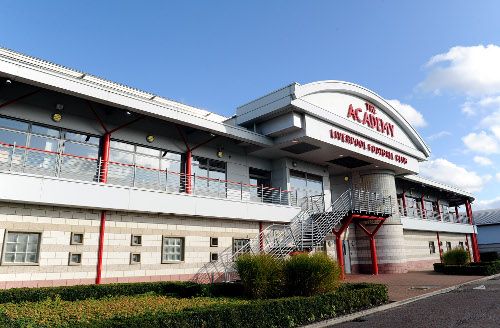
The way we react to injuries differs between training and matches. If it's a game, the initial assessment will be done by me - so I'll be the lead physio on a matchday. Richie is always pitch-side for all our matches and at a training session it will depend.
For training sessions with the U18s and U21s, we always have a physio pitch-side for each squad, and try and rotate between the staff so that all of us can maintain a hands-on role with all injured players.
To use an extreme example in a match, here's how we responded when Marc Pelosi broke his leg in a game against West Brom at The Hawthorns in February.
As I went onto the pitch it was already obvious from the initial impact of the injury that something serious had occurred. Once on the pitch, I realised the full extent of what had happened and so I waved Richie on along with the rest of the support staff and West Brom's doctor - for U21 games the home side provide the doctor.
Unfortunately, in that situation, Marc had a severe injury which required extensive and immediate care.
First, we had to take him off the pitch and into the treatment room to reassess him and make sure that he was as stable and as comfortable as he could be.
I then went alongside Marc in the ambulance to the hospital in West Brom, where he was put into a cast and cared for until he was in a position where we were able to transport him back up to Liverpool safely.
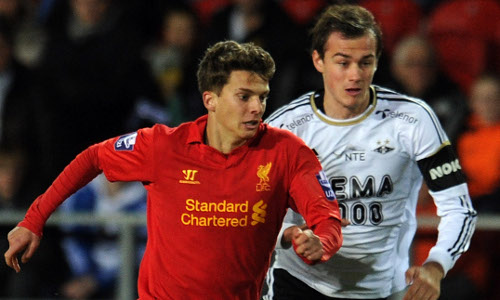
I travelled to the hospital in Liverpool with Marc, where he was operated on a day later.
That's an example of extreme circumstances. More often than not, it's just a case of bumps, bruises and kicks and minor muscle tears. So we'll get the lads in the treatment room, asses them and see what we think before dealing with them in a relatively straightforward manner.
But unfortunately, Marc's injury was a tricky one - and it came at a time when we had already lost two players, Samed Yesil and Brad Smith, to ACL injuries, which require a minimum six to nine month lay-off.
It's hard from a personal point of view, because when you work with these players day-in, day-out, you get close to them and you do develop very good, professional relationships with the players. We also grow fond of them over time, so when the injury occurs, it affects us as staff as well as the player concerned.
It's not a very nice thing for us to experience. Obviously it's much worse for a player, but for us to see those players get injured and to see how upset they are, is sometimes difficult.
Brad and Samed had got injured and then this happened to Marc and it was a very sad moment indeed. However, part of our job is also to try and keep those players going during the early stages when they can be understandably quite subdued.
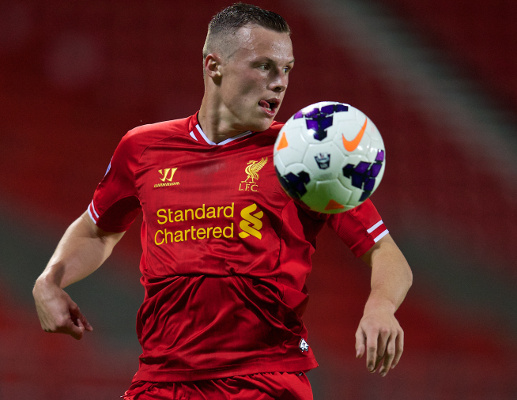
We've got to try and figure out ways of keeping them motivated and try and get their focus on what they have to do to get themselves back.
So we allow them that bit of time to realise their situation, but what we've also got to do - and very quickly - is instil the correct mentality. They have to refocus and think: "Right, what do I need to do now."
We've been able to get Samed and Brad, as well as Jakub Sokolik and Jordan Williams, back to fitness, and now we've just got to get Marc back in there. But he's doing very, very well.
Although it's not nice for us to have these players out injured, the attitude of the players has been exceptional throughout that time period, and they're a great set of lads to work with.
When injured players, particularly the long-term ones, start to re-integrate back into training and games, this is a very rewarding time for us as staff. To see them with a smile back on their face and out training with the rest of the boys is great and it makes us very happy.
It's closure for the player as well, because they're always eager to get back, especially after such a long period of time. They've been sat inside for months on end, watching their teammates head out for training and they're left on a treatment bed.
But this week, both Brad and Samed returned to play their first minutes since January when they featured in the U21s' 5-0 win over Tottenham.
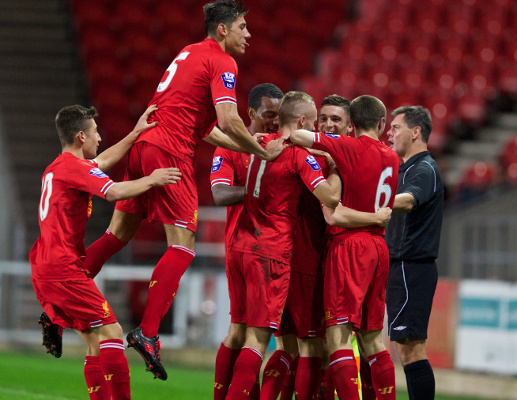
This was a moment myself and Richie, as well as all the other Academy staff, had looked forward to for some time, and so when Brad scored the fourth goal it made the night even better.
I wasn't aware at the time, but LFC TV showed footage of me celebrating the goal and Steve Hunter, the channel's commentator, mentioned how happy I was and why the moment meant so much to me. I hadn't seen the clip until Brad showed me it on his mobile phone this week.
I think it needs to be stressed though, that Richie has spent just as much time in rehab with those boys as I have. Someone must have been blocking Richie from view in the video - he's not the biggest of lads so can be easily hidden! But his response was exactly the same behind me, and he also needs equal credit for getting the lads back on the pitch in such great shape.
To see Brad, who's gone through so much at such a young age, score in his first competitive game back and score in the manner that he did, and then see that happiness on his face means an awful lot to us.
All of the lads have worked so hard to get themselves back on the pitch - with Marc hopefully soon following suit - and they should all be very proud of themselves for the manner in which they've grown both as players and individuals over the last eight months.
I assure you that the staff are already immensely proud of them for handling such difficult times in such a professional and adult manner.


